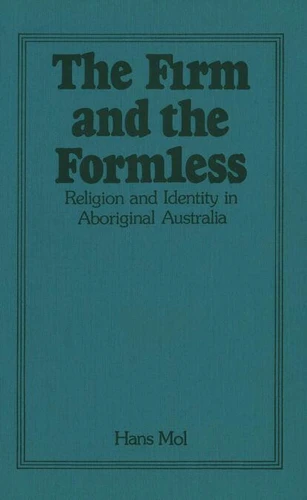The Firm and the Formless. Religion and Identity in Aboriginal Australia
Par :Formats :
Disponible dans votre compte client Decitre ou Furet du Nord dès validation de votre commande. Le format PDF est :
- Compatible avec une lecture sur My Vivlio (smartphone, tablette, ordinateur)
- Compatible avec une lecture sur liseuses Vivlio
- Pour les liseuses autres que Vivlio, vous devez utiliser le logiciel Adobe Digital Edition. Non compatible avec la lecture sur les liseuses Kindle, Remarkable et Sony
 , qui est-ce ?
, qui est-ce ?Notre partenaire de plateforme de lecture numérique où vous retrouverez l'ensemble de vos ebooks gratuitement
Pour en savoir plus sur nos ebooks, consultez notre aide en ligne ici
- Nombre de pages112
- FormatPDF
- ISBN0-88920-678-3
- EAN9780889206786
- Date de parution01/12/1982
- Protection num.Digital Watermarking
- Taille6 Mo
- Infos supplémentairespdf
- ÉditeurWilfrid Laurier University Pre
Résumé
This volume is woven around the idea that wholeness (the firm) and fragmentation (risking formlessness) alternate in human affairs. This theme is applied to the history and the present condition of Australian Aboriginals. Their religion is seen as a way to bolster a precarious identity and to affirm order in an existence which would otherwise become formless. It deals with totemism as a form of ordering a variety of often conflicting identities.
The author describes the modern predicament of Aborigines in Australian society and concludes that their revitalization will occur only when they manage to make economic self-sufficiency subordinate to a viable and firm view of existence. He critically integrates into his analyses and interpretations the positions of such well-known scholars as Frazer, Durkheim, Freud, Lévi-Strauss, Radcliffe-Brown, Eliade, and Stanner.
The volume will be of interest to students of sociology, anthropology, and religion.
The author describes the modern predicament of Aborigines in Australian society and concludes that their revitalization will occur only when they manage to make economic self-sufficiency subordinate to a viable and firm view of existence. He critically integrates into his analyses and interpretations the positions of such well-known scholars as Frazer, Durkheim, Freud, Lévi-Strauss, Radcliffe-Brown, Eliade, and Stanner.
The volume will be of interest to students of sociology, anthropology, and religion.
This volume is woven around the idea that wholeness (the firm) and fragmentation (risking formlessness) alternate in human affairs. This theme is applied to the history and the present condition of Australian Aboriginals. Their religion is seen as a way to bolster a precarious identity and to affirm order in an existence which would otherwise become formless. It deals with totemism as a form of ordering a variety of often conflicting identities.
The author describes the modern predicament of Aborigines in Australian society and concludes that their revitalization will occur only when they manage to make economic self-sufficiency subordinate to a viable and firm view of existence. He critically integrates into his analyses and interpretations the positions of such well-known scholars as Frazer, Durkheim, Freud, Lévi-Strauss, Radcliffe-Brown, Eliade, and Stanner.
The volume will be of interest to students of sociology, anthropology, and religion.
The author describes the modern predicament of Aborigines in Australian society and concludes that their revitalization will occur only when they manage to make economic self-sufficiency subordinate to a viable and firm view of existence. He critically integrates into his analyses and interpretations the positions of such well-known scholars as Frazer, Durkheim, Freud, Lévi-Strauss, Radcliffe-Brown, Eliade, and Stanner.
The volume will be of interest to students of sociology, anthropology, and religion.




